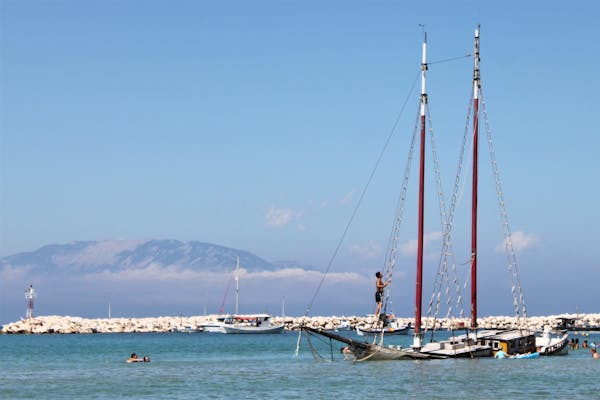Planned Cruise Expansion at Port Canaveral Faces State Opposition

The Planned Cruise Expansion at Port Canaveral Faces State Opposition has ignited a contentious debate that reverberates through the realms of local politics, environmental concerns, and economic interests. As Port Canaveral, one of Florida’s premier cruise hubs, seeks to augment its facilities and accommodate a growing fleet of luxury liners, the expansion plans are encountering significant resistance from state authorities. This opposition is emblematic of the broader struggles faced by infrastructural projects that intersect with environmental and regulatory issues.
The Expansion Proposal
The expansion at Port Canaveral aims to elevate its status as a leading cruise port by adding new terminals, increasing docking capacity, and upgrading existing infrastructure. This ambitious project is designed to attract larger vessels and enhance the port’s ability to handle a greater volume of passengers. The proposed upgrades include new docking facilities, expanded passenger amenities, and improvements to the logistics and operational systems that support cruise ship operations.
Proponents of the expansion argue that these enhancements are crucial for maintaining the port’s competitive edge in the cruise industry. The expansion is projected to generate substantial economic benefits, including job creation, increased tourism, and elevated revenue for local businesses. By accommodating more and larger cruise ships, Port Canaveral aims to solidify its position as a premier destination for cruise lines and tourists alike.
State Opposition
Despite the perceived benefits, the Planned Cruise Expansion at Port Canaveral Faces State Opposition from various factions, including environmentalists, local residents, and certain state officials. The core of the opposition centers around concerns about the environmental impact of the expansion and its potential effects on the surrounding ecosystem.
One significant issue is the potential disruption to the delicate marine environment of the area. Critics argue that the expansion could lead to increased pollution, habitat destruction, and adverse effects on local wildlife. The Brevard County region, where Port Canaveral is located, is home to sensitive ecosystems, including mangroves, seagrass beds, and endangered species. Opponents fear that the expansion could exacerbate existing environmental pressures and compromise the health of these vital habitats.
Furthermore, there are concerns about the social and infrastructural impact on local communities. The influx of additional tourists and the accompanying rise in traffic congestion could strain local resources and infrastructure. Some residents worry that the expansion might alter the character of the area and diminish the quality of life for those living near the port.
Environmental and Regulatory Challenges
The environmental challenges associated with the expansion are significant. Florida’s coastal ecosystems are already under pressure from various factors, including climate change, pollution, and overdevelopment. The proposed expansion at Port Canaveral introduces additional risks, which have prompted calls for rigorous environmental assessments and regulatory reviews.
State opposition has highlighted the need for comprehensive environmental impact studies to evaluate the potential consequences of the expansion. These studies are intended to assess the effects on water quality, marine life, and coastal processes. They also aim to identify mitigation measures to minimize any negative impacts and ensure that the expansion complies with environmental regulations.
Regulatory scrutiny is a crucial aspect of the approval process for such large-scale projects. State agencies responsible for environmental protection and coastal management play a pivotal role in reviewing and regulating the expansion plans. The opposition underscores the importance of adhering to these regulatory frameworks and ensuring that the project aligns with state and federal environmental standards.
Economic Considerations
While environmental concerns are paramount, the economic implications of the expansion also warrant consideration. The potential benefits of the project, such as increased tourism revenue and job creation, are significant factors that support the expansion proposal. Proponents argue that the economic advantages will far outweigh the potential drawbacks and that the expansion is a strategic investment in the future of Port Canaveral and the broader regional economy.
Economic analyses suggest that the expansion could generate substantial direct and indirect economic benefits. These include increased spending by tourists, job opportunities in the hospitality and service sectors, and enhanced revenue for local businesses. The expansion is also seen as a means to bolster Port Canaveral’s competitiveness in the cruise industry, attracting more cruise lines and passengers.
Community and Stakeholder Engagement
The controversy surrounding the Planned Cruise Expansion at Port Canaveral Faces State Opposition underscores the need for effective community and stakeholder engagement. Addressing concerns and fostering dialogue between all parties involved is essential for navigating the complexities of the expansion project.
Stakeholder engagement involves consulting with local residents, business owners, environmental groups, and other interested parties. It is crucial to address their concerns, gather input, and consider their perspectives in the decision-making process. Transparent communication and collaboration can help build consensus and identify solutions that balance economic growth with environmental protection.
Public forums, community meetings, and stakeholder consultations are key components of this engagement process. They provide platforms for discussing the project, presenting findings from environmental assessments, and exploring potential mitigation measures. Effective engagement can also help mitigate opposition by demonstrating a commitment to addressing concerns and ensuring that the project aligns with community values and interests.
Moving Forward
As the Planned Cruise Expansion at Port Canaveral Faces State Opposition, the path forward involves navigating a complex landscape of environmental, economic, and regulatory considerations. The resolution of this controversy will depend on the ability to balance competing interests, address concerns, and ensure that the expansion aligns with both the needs of the port and the values of the community.
The process will likely involve continued discussions between stakeholders, revisions to the expansion plans, and ongoing regulatory reviews. The goal is to achieve a solution that maximizes the benefits of the expansion while minimizing its potential negative impacts. This may include implementing enhanced environmental safeguards, improving community infrastructure, and ensuring that the project supports sustainable growth.
In conclusion, the Planned Cruise Expansion at Port Canaveral Faces State Opposition is a case study in the challenges of managing large-scale infrastructure projects within sensitive environments. The outcome of this dispute will have implications not only for Port Canaveral but also for other coastal and tourist destinations facing similar dilemmas. Balancing economic development with environmental stewardship remains a critical challenge, and finding a path forward will require careful consideration, collaboration, and commitment to sustainable practices.





